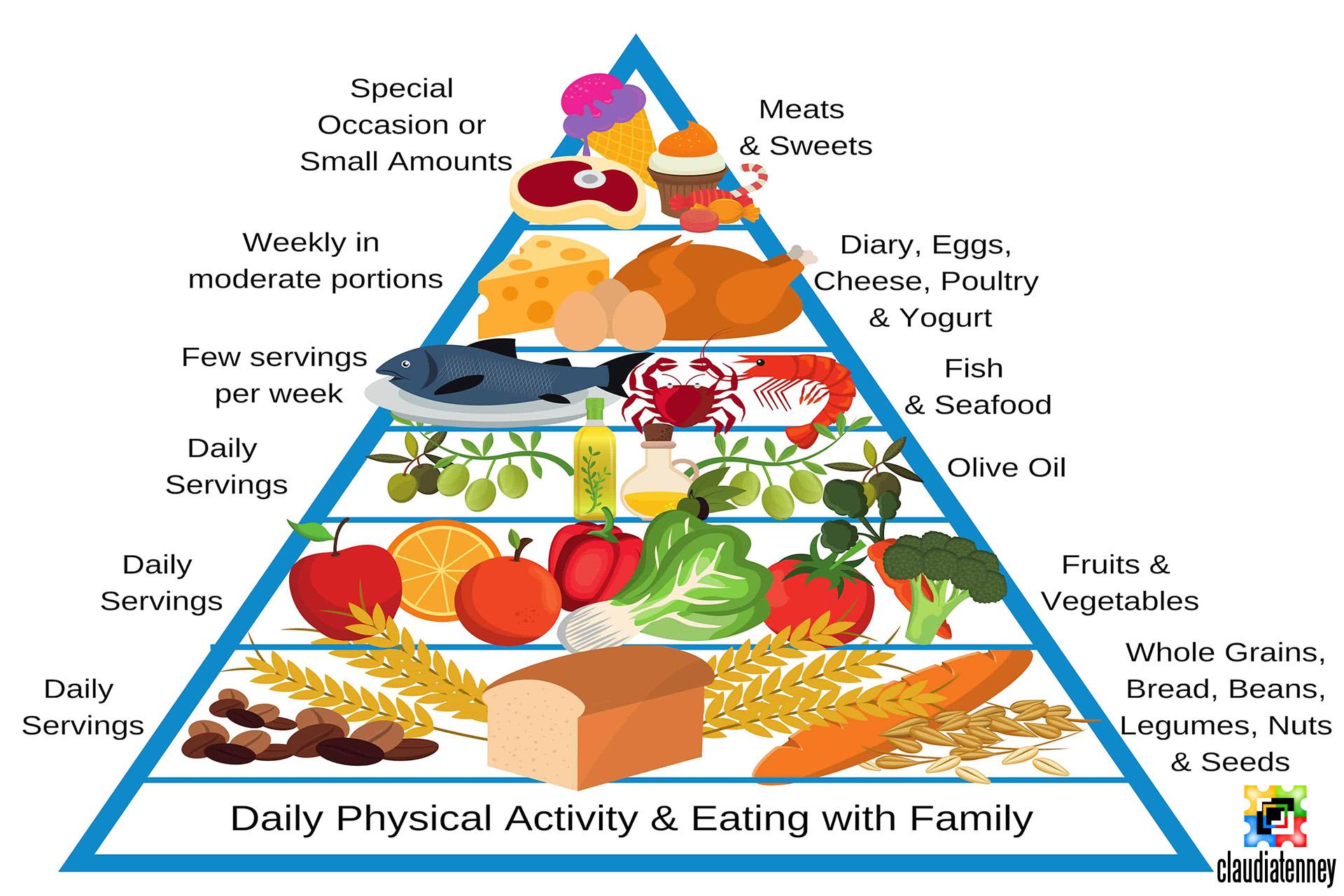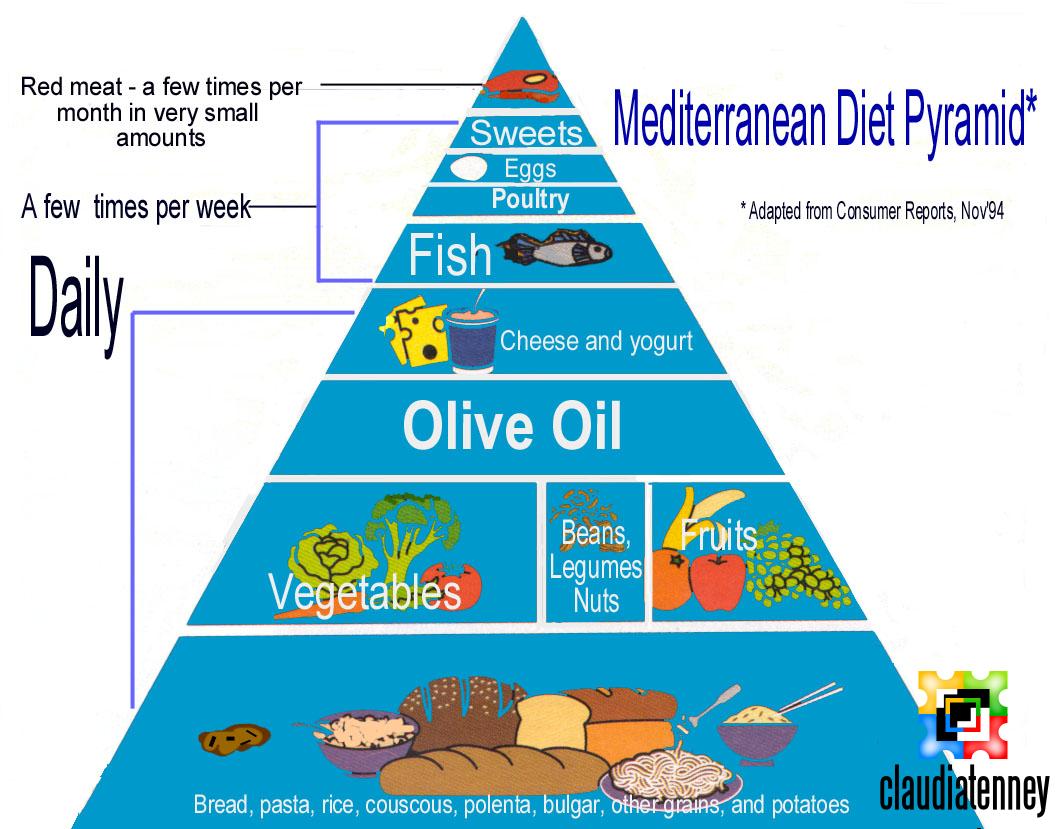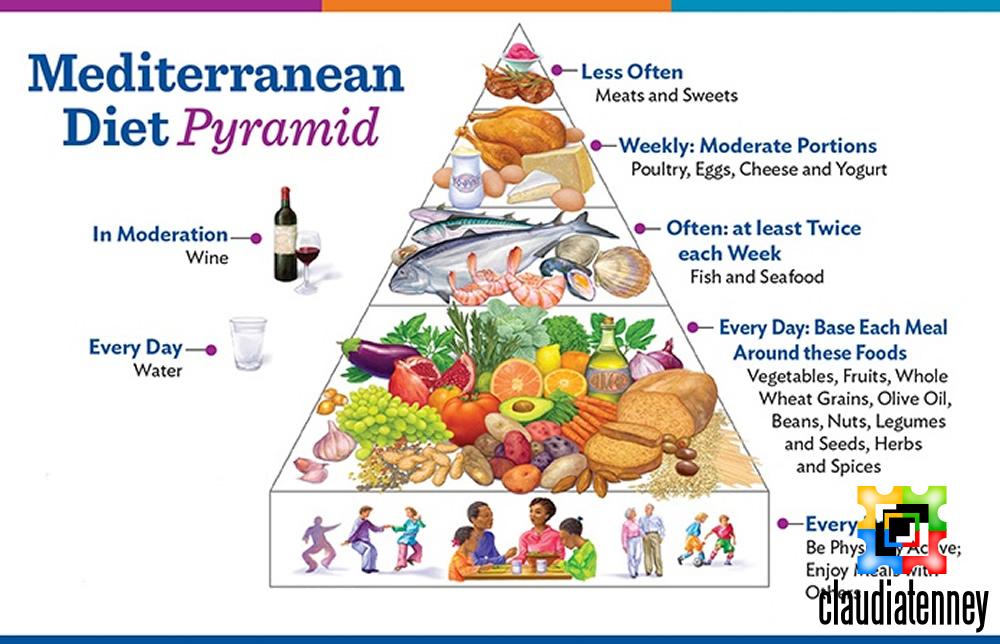Choosing to follow a Mediterranean diet can be a great way to lose weight and improve your health. Here are a few things you should keep in mind before beginning.
Fish
Whether you’re looking to improve your health or manage diabetes, the Mediterranean diet can be a good way to go. Eating Mediterranean style has been shown to help prevent cardiovascular disease and may even help fight certain types of cancer. Unlike other diets, the Mediterranean diet is not a strict one, so you can adjust your meals to fit your lifestyle. It is also less expensive than many packaged foods.
The diet is made up of mainly plant-based foods, with an emphasis on nuts, seeds, vegetables, legumes, fish, and whole grains. It is low in added sugars, fats, and processed foods.

Crisp vegetables
Whether you’re trying to lose weight, increase your energy, or just feel better, starting the Mediterranean diet is a great way to incorporate a large number of fresh, healthy vegetables into your diet. This healthy eating style has been backed by years of research, and has been linked to numerous health benefits.
Mediterranean cuisine is packed with tons of rich, crisp vegetables. You can make a Mediterranean roasted vegetable recipe with whatever vegetables you have on hand. If you want to make the meal a little more exciting, try using different herbs and spices, or adding a cube of cheese to the dish.
Legumes
Among the many foods to include in a Mediterranean diet are legumes, which are rich in protein, fiber, and iron. They are also inexpensive and filling. They can be used in a variety of recipes.

Legumes, also known as pulses, are rich in protein, fiber, and iron. In addition, they contain potassium, zinc, and magnesium. These nutrients are important for improving cardiovascular health, promoting healthy sleep, and reducing cancer risk.
In the traditional Mediterranean diet, legumes are a primary source of protein. They are also a source of fiber, which is beneficial to those with type 2 diabetes. In addition, legumes are rich in phosphorus and potassium. They are also an excellent source of calcium, iron, and zinc.
Whole foods
Whether you are looking to lose weight or improve your health, the Mediterranean diet can help. It is an eating plan that is rich in vegetables and fruits, and can be easy to follow. It is also rich in omega-3 fats. Omega-3 fats are known to lower cholesterol, reduce inflammation, and improve insulin resistance. In addition, it may reduce the risk of developing heart disease.
The Mediterranean diet is largely a plant-based diet, which includes nuts, vegetables, fruits, olive oil, and whole grains. In moderation, dairy products can also be included. However, it is important to avoid processed foods.
Processed foods
Getting started on a Mediterranean diet might be a bit daunting. But the good news is, it is not as difficult as you might think.
The Mediterranean diet focuses on foods that reduce the risk of heart disease and type 2 diabetes. It encourages the consumption of fruits and vegetables, whole grains, and legumes. These foods also improve your mood and cognitive abilities. The diet is rich in nuts and olive oil, two substances that have been shown to reduce the risk of heart disease and other inflammatory conditions.
Red meat
Several studies have shown that the Mediterranean diet is associated with decreased risk of heart disease, stroke, and diabetes. It can also reduce the risk of certain cancers and depression.
The Mediterranean diet emphasizes nutrient-dense plant-based foods such as whole grains, fruits, and vegetables. In addition, it includes olive oil, legumes, and fish. It is a healthy eating plan that is easy to follow. It is also very inexpensive.
A study funded by the Pork Checkoff, Indiana Clinical and Translational Sciences Institute, and the National Institutes of Health showed that a Mediterranean-style eating pattern may promote health and reduce the risk of chronic disease. In addition to lower risk of heart disease, the eating plan is also associated with lower rates of cancers, diabetes, Alzheimer’s disease, and frailty in older adults.
Sweets
Fortunately, you don’t have to cut sweets out of your diet to get the benefits of the Mediterranean diet. You can incorporate small amounts of fruit and dairy into your meals while still enjoying the health benefits.
The Mediterranean diet emphasizes healthy fats, low sodium and cholesterol, and beneficial carbohydrates. The food pyramid also focuses on whole grains, vegetables, legumes, and poultry. You can add cheese, yogurt, and seafood to your diet.
Adding protein and fiber to your meals makes them more filling. You can eat more foods that provide these nutrients by adding them to salads, sandwiches, and other meals. You can also use them as a snack.
Frequently Asked Questions
Frequently Asked Questions to start the Mediterranean diet are the same as the questions most people have about a new diet. The Mediterranean diet is a healthy way to live and may help you lose weight or feel better.
This diet is based on fruits, vegetables, whole grains, nuts, and olive oil. It also includes red wine, but only in moderation. It’s a great way to lower your risk of heart disease and cancer. However, you need to know which foods to eat and which to avoid.



